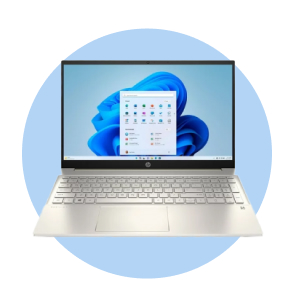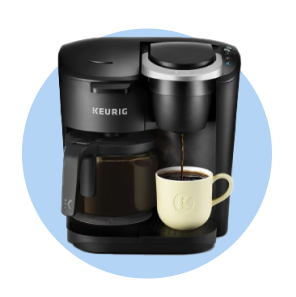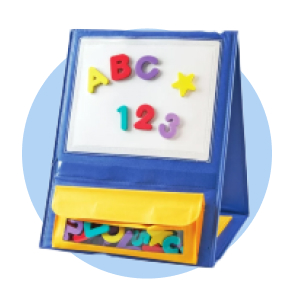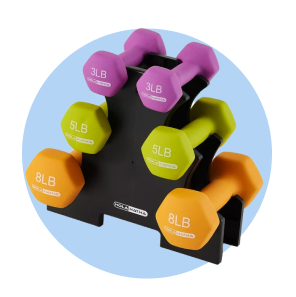
The Buyer’s Guide to Small Business Accounting Software
Make accounting a breeze
Small business owners have a lot on their plate. Not only do they have to keep their operations running smoothly—they’re often the ones responsible for balancing the account books. Rather than taking time out of their busy schedule to manually manage their finances, they turn to small business accounting software to automate the tedium away. That way, they can spend more time running their business.
This guide will help those in the market for an accounting software solution understand which features to look out for so they can keep their finances organized.

What is small business accounting software?
Small business accounting software is a computer program or mobile application designed to help companies manage their financial affairs more efficiently.
While large enterprises often have entire teams of accountants to manage their finances, many small businesses have only one person handling the books. It’s often the person who runs the company, and they may not have a background in finance. As such, these programs often provide an interface designed for users who lack accounting experience.
The best small business accounting software will offer some or all of these vital accounting functions:
- Invoicing capabilities that automatically generate and send invoices to clients and customers and track who’s paid and who hasn’t.
- Accounts payable systems that take care of your bills with purchase order management and automated payment scheduling.
- Small business payroll software ensures employees get paid while accounting for the appropriate tax and investment deductions.
- Reporting to give you a better picture of your income and outgoing expenses in monthly, quarterly and annual increments.
- Tax preparation with the requisite forms to reduce the chances of being blindsided by an audit.

The benefits of small business accounting software
While it’s possible to track your finances with a handful of simple spreadsheets, small business accounting software offers robust financial management tools that will enhance your ability to manage the books.
- Reduced time and money spent managing the books: You don’t need to worry about copying the same data point in multiple places or manually creating your monthly reports. The software takes care of most of the hard work for you, relying on standard accounting formulas and data sheets.
- Improved data accuracy: Because the software automates the formulas your business relies on and applies them throughout your accounts, you can rest easy knowing that the data it shows is as accurate as possible. Error reporting will also alert you when there are discrepancies within your accounts so you can fix them fast.
- Increased security: Many accounting software options include secure login and account management functionality, keeping unauthorized users away from sensitive financial data.
- Tax compliance: Built-in tax forms and processes help you stay current on whether or not you owe anything to the IRS. Save scanned receipts, track expenses and find every deduction you can to get the most back on your taxes.

What to look for in small business accounting software
Tracking invoices, managing payroll and paying bills are all relatively standard features of accounting software. However, some software suites have additional enhancements that make managing your accounts even more efficient. Some of these features are essential, while others are nice-to-have bonuses. Be sure to consider what is most important for your business before choosing a particular accounting solution.
- Automation tools: These tools will automatically calculate incoming and outgoing funds, put entered values in other important forms, point out critical tax codes, highlight errors and keep your finances compliant. Other important tools include automated bill pay, payroll, bank deposits and even electronic tax filing. The more your accounting software can remove manual processes from your workflow, the better.
- Integration with other systems: You likely rely on other software to manage point-of-sale payments, inventory and other aspects of running your business. Rather than manually entering the requisite data into the books, accounting software often allows for third-party integration with these tools. Be sure to check with the vendor for a compatibility list to ensure that your current tools will seamlessly link up to your chosen account software.
- Mobile app: While not every business owner will need to manage their accounts with a mobile app, having one available gives you full access to your accounts even if you’re away from your computer.
- Customer support: If you have a question about how your software works or need to find out what tax form applies to which account, having immediate access to customer support can be a lifesaver. Consider options that offer contact options like email and chat in addition to standard phone calls—even better if they’re available 24/7.
Common pricing structures
Pricing for small business accounting software varies depending on the vendor. Many providers offer a free option, usually via a time-limited free trial. Once the trial period ends, the platform will direct you to subscribe for a monthly fee. Some vendors offer tiered services, with basic features available for a smaller monthly or annual fee and additional integration and automation features available at higher-cost tiers. Some provide a user access limit and charge extra for each additional account using the software. Be sure to check with the provider for a pricing structure for more specific details.
Keep expenses low with Walmart Business+
Looking for more ways to manage your expenses? Walmart Business+ is here to help. We’re stocked with must-have office equipment and supplies, all at prices to fit your budget. With your membership, you’ll save even more with free shipping right to your door with no order minimum.1 You’ll even get Spend Analytics tools that show what you’re buying and what you’re spending to keep those expense reports low.
Want to discover even more ways to save? Join Walmart Business+ today to save over $500/year and enjoy exclusive rewards for your organization.2


Limited-time offer
Unlock your special promo code
Stay informed on Walmart Business news & get $20 off a $100 purchase!1
1Minimum order of $100. Promo code can be used one time & may not be combined with other offers. Offer not transferable & void where prohibited by law. Customer responsible for all applicable taxes. Offer expires 12/31/2025 at 11:59pm PT. Further restrictions apply. See terms at checkout for details. Promo code offers available in limited quantities. While supplies last.
1Excludes most Marketplace items, freight and certain location surcharges.
2Savings based on 1 free $35+ delivery order vs. $9.95 fee and 1 free shipping order under $35 vs. $6.99 fee biweekly, plus 2% Walmart Business rewards on monthly order >$250 (average value of $400).
Exciting news awaits
Hear firsthand about new products, features & promotions.
By clicking submit, you agree to receive emails about Walmart Business and acknowledge you have read and agreed to our Terms of use and Privacy Policy.










